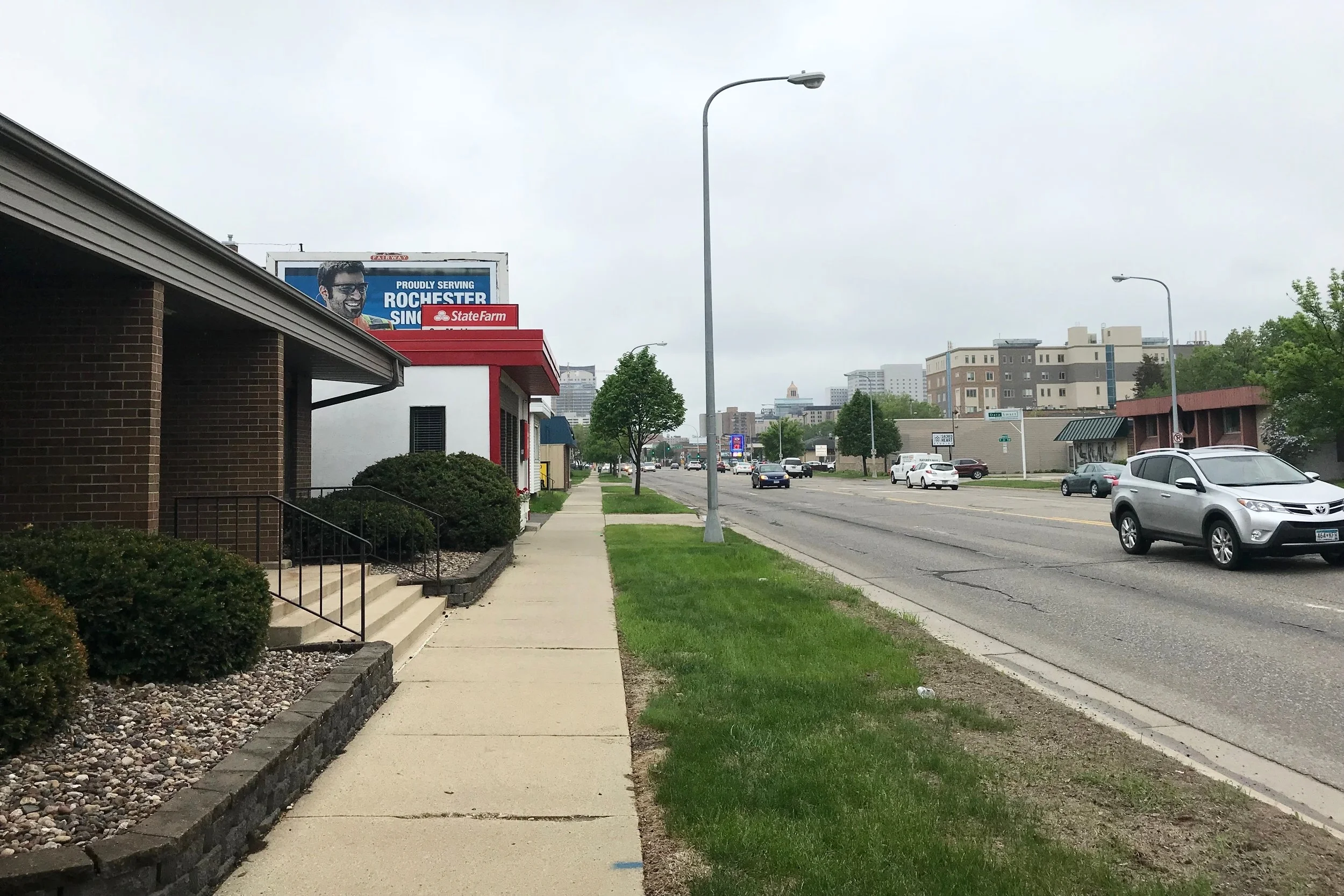Rochester considers providing aid to businesses affected by redevelopment work
Should the city of Rochester help local businesses get through hard times brought on by road construction and other large-scale developments?
The question centers around the North Broadway reconstruction project, and Rochester City Council members spent Monday afternoon discussing the possibility of an economic assistance plan that may end up serving as a model for future construction projects in the area.
The proposed program, titled the Rochester Economic Preservation Program, was introduced by City Administrator Steve Rymer, who referred to it as a “toolkit” for local businesses to survive the challenges brought on by construction projects, such as limited customer access, business disruption and reduced revenue. Earlier in the month, the council had asked Rymer and his staff to look into options for an economic assistance program.
The program would provide aid to businesses during the construction period, when small businesses could be threatened by a loss of revenue. Types of aid, according to Rymer, could range from direct payments, grant programs, short and long-term loans, and general corridor assistance programs (wayfinding signs and marketing assistance).
While most council members were generally supportive of the idea, discussion focused on which businesses would receive direct city support. Council Member Nick Campion said there would “have to be a demonstration of need” if businesses were to receive support from the city. Campion did not go so far as to propose a specific guideline of what businesses qualify for city support, but said other communities in similar situations put a $2 million cap on yearly revenue to determine which businesses would receive aid.
Councilor Michael Wojcik was concerned about different guidelines — more specifically, which businesses offered jobs with "living wages." Wojcik told the council, “I don’t want to throw taxpayer dollars chasing poverty-level jobs ... [Businesses] with access to public assistance should be something that the employees are on a wage that allows them to live a decent life in Rochester."
Rymer and the council were in agreement that any program approved by the council would have to be a group effort. “One of the best practices would be pulling together some of the community partners, such as the Chamber [of Commerce], RAEDI, DMC … and start that conversation."
Campion added that he would like to “bring in some of the stakeholders, to make sure we’re building a system that’s going to work for the people we’re trying to target" with the proposed plan. "I want to make sure we’re using the right tool for these businesses," he said.
Council members noted that any plan would need to become more specific before it would be allowed to move forward. Councilor Mark Bilderback, who represents the downtown area, said he would be supportive of the concept as long as it proved sustainable.
"We’ve had a lot of businesses … that have suffered because of construction and the difficulties getting to them," he said. "This isn’t going to be North Broadway, and then there’s no construction for the next 30 years. We’ll be doing projects one on top of the other, and many of them will involve small businesses having to try to figure out what’s going on, so having a resource pool would be great to help others in the future go through this issue.”
Council President Randy Staver, meantime, said he was skeptical of the concept. “The devil’s in the details,” said Staver. “And I’m probably a bit more guarded on this than some of my colleagues … the dollars have to come from somewhere.” Staver went on to express concern over sending public dollars for private benefit, saying it could start a “slippery slope” if criteria were not strict enough.
The next step in the process, according to Rymer, would be reaching out to community partners like the Rochester Area Chamber of Commerce, the DMC Economic Development Agency, RAEDI, and business owners in the corridor to figure out what types of aid would work best for businesses.
Reached Tuesday, interim Chamber President Kathleen Harrington said she was supportive of the discussion moving forward. "The Chamber is pleased and will continue to advocate for consideration of economic impact of public works projects on small business," said Harrington. "We will definitely work with the City staff and the Council as they consider options for this policy."
Rymer said he intends to have a more specific plan available for the council soon, but did not offer a specific date for the plan’s completion.
Isaac Jahns is a 2015 graduate of Mayo High School and a current journalism student at the University of Missouri. His main passions are writing music and telling people’s stories. Follow Isaac on Twitter.








